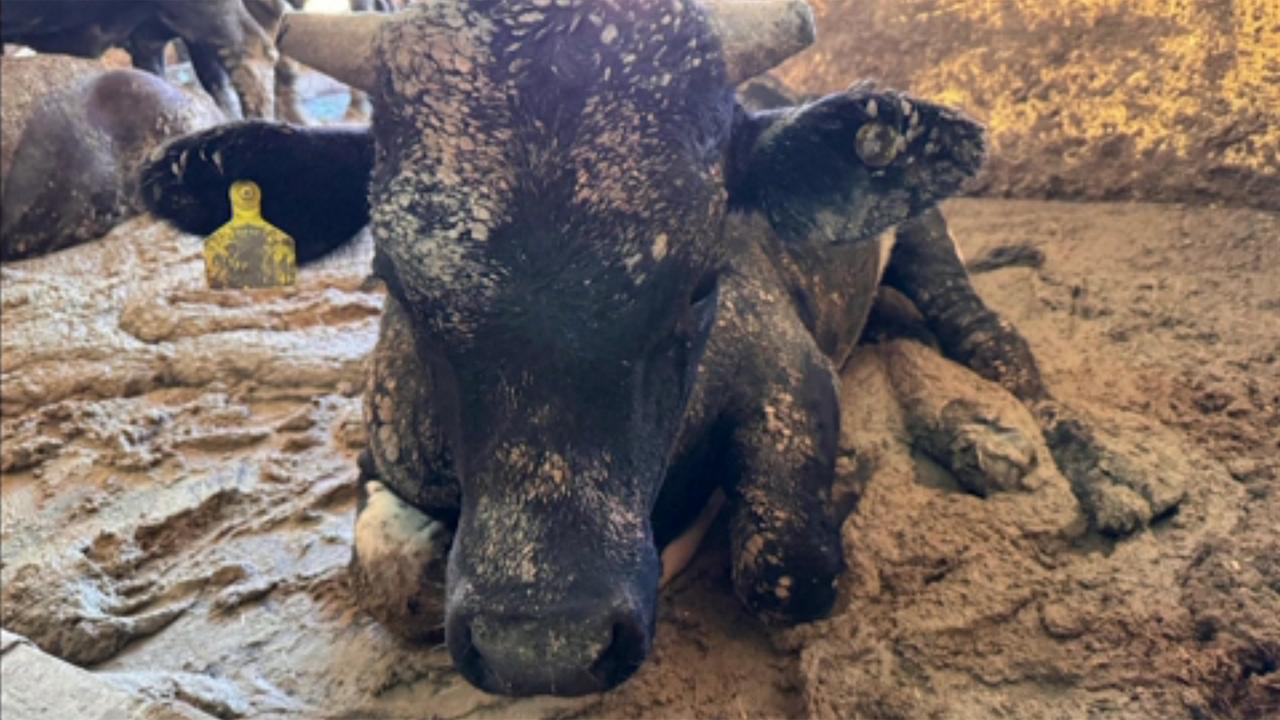In Cape Town, South Africa, a huge transport of animals has caused criticism. A ship with 19,000 cattle had docked there. Animal rights activists complain about the cruel suffering on board, and residents complained about the smell.
Thousands of cattle standing deep in their own excrement – for two and a half weeks. Animal rights activists saw this picture on a freighter in the South African city of Cape Town. The ship docked there on Sunday in the port, which borders directly on the city center – and provoked sharp criticism.
According to the city administration, there are around 19,000 animals on board on the way from Brazil to Iraq. Brazil is the world's largest exporter of beef.
Around 19,000 cattle are transported on this ship – some of them under cruel conditions, say animal rights activists.
Animals stand deep in excrement
The South African animal welfare association NSPCA (Society for the Prevention of Cruelty to Animals) sent a specialist on board the “Al Kuwait” to check the condition of the animals. In the subsequent statement, the organization pointed out “the terrible conditions” of the animals, which had already been on board for two and a half weeks.
The animals are therefore “deep in feces and ammonia”. Pictures from on board show cattle that are almost completely covered in excrement. “The smell on board is unimaginable,” said the association's veterinary advisor, Bruce Marock.
These pictures are from on board the cattle truck. The animals are standing deep in the dirt and their fur is also very dirty.
Criticism from animal rights activists
The German animal welfare foundation Vier Pfoten pointed out that the animals not only suffered from the poor hygienic conditions and the stench – transporting live animals for weeks was generally torture for them.
Animals are also regularly transported on ships from Germany – for example across the Mediterranean towards North Africa. A draft law for a new transport regulation presented by the EU Commission also allows “cruelty to animal transport” to continue, said Nadine Miesterek from Vier Pfoten.
live transport are cheaper
According to the Federal Information Center for Agriculture (BZL), animal transport from Germany to non-European countries is increasing – in some cases as far as the Middle East. But why are animals sometimes transported alive thousands of kilometers in order to then be slaughtered there – even though they could also be slaughtered in Germany and then spared them the long transport?
According to the BZL, one of the main reasons for this is that it simply costs less money. You could also just export the meat – “the problem is that transporting live animals is usually cheaper than transporting meat, which has to be transported in special refrigerated trucks.”
Capetonians complain about the smell
The huge ship with the cattle on board also caused a great uproar among the residents of Cape Town. There was a strong smell of manure in the center of the city with five million inhabitants and in the surrounding area on Monday. The city administration initially assumed that the smell came from a defective sewage system in Cape Town. It was only several hours later that the authorities attributed the cause to the ship's transporter.
The ship has now left the port and is on its way to Iraq. This has solved the problem for the people of Cape Town – but the animals probably continue to lie in their excrement until they reach their destination.
Karin Wehrheim, SWR, tagesschau, February 21, 2024 10:01 a.m




